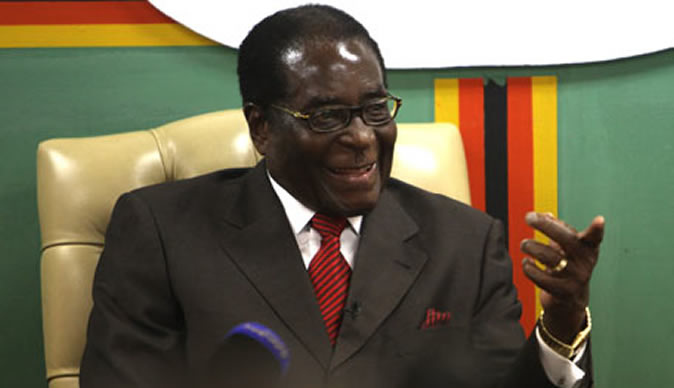


 PRESIDENT Robert Mugabe, who celebrates his 91st birthday next month, is on the verge of landing the African Union (AU) chairmanship amid a deepening crisis in his own party, ZANU-PF. ZANU-PF is in the throes of epoch-defining infighting which has been raging nonstop for years.
PRESIDENT Robert Mugabe, who celebrates his 91st birthday next month, is on the verge of landing the African Union (AU) chairmanship amid a deepening crisis in his own party, ZANU-PF. ZANU-PF is in the throes of epoch-defining infighting which has been raging nonstop for years.
The infighting, which started well before the turn of the millennium, climaxed towards the ruling party’s congress held last December. There are no signs at the moment of the infighting abating. In fact, things are coming to a head, with those condemned to the political dustbins at congress preparing for a bruising legal battle. This is certain to plunge the party into its biggest political crisis yet.
Despite ZANU-PF’s troubles at home, President Mugabe is set to succeed President Abdel Aziz of Mauritania as the AU chair. He is currently the first deputy chair — a position he has held for the past year. The second and third deputies of the AU are held by the Democratic Republic of Congo (DRC) and Nigeria.
ZANU-PF officials view the pending elevation of their leader as “a show of confidence” in the country’s leadership.
President Mugabe’s leadership and his anti-Western rhetoric is in some quarters widely seen as necessary to give the AU some teeth.
The continental body has over the past few years come under heavy criticism for dealing with Africa’s problems with kid gloves and bending over backwards to Western influence. President Mugabe has gained a fierce reputation as an anti-West crusader and is unlikely to cave into any of their demands once he ascends to the AU’s top office.
As the current chair of the 15-member Southern African Development Community (SADC), he has enjoyed a modicum of regional influence. Clinching the AU post would therefore enable him to have a say in directing the continent’s affairs. This is critical as he stitches up his legacy in the twilight years of his political career. His elevation would fly in the face of the West which has imposed sanctions on him for over a decade.
This comes as the European Union is expected next month to make a decision on whether it would keep the remaining sanctions imposed on President Mugabe and First Lady, Grace, since 2003. The AU is historically not known to be fussy with the appointment of its leaders, with even those who have had an acrimonious relationship with the West having occupied the top job.
The position has formerly been held by Equatorial Guinea’s Theodore Obiang Nguema and Libya’s former strongman, Muammar Gaddafi. While there has been a slow but steady blossoming of relations between the West and Malabo, Gaddafi’s regime had a cat and mouse relationship with the West which ended with the demise of the Lybian leader in October 2011.
A Western diplomat based in Harare who asked not to be identified said this week that “the West would have no choice, but to engage President Mugabe after years of isolating him should he be the next AU chairman”.
Charles Mangongera, a political commentator, said it was paradoxical that President Mugabe was the frontrunner to lead the AU, given the current events in his own backyard. The ZANU-PF ructions, however, pale into insignificance in comparison to the Boko Haram insurgency in Nigeria, the Ebola outbreak in the West African countries of Guinea, Liberia and Sierra-Leone, the rising pockets of terrorism in Kenya and the long-standing instability brought about by the DRC war.